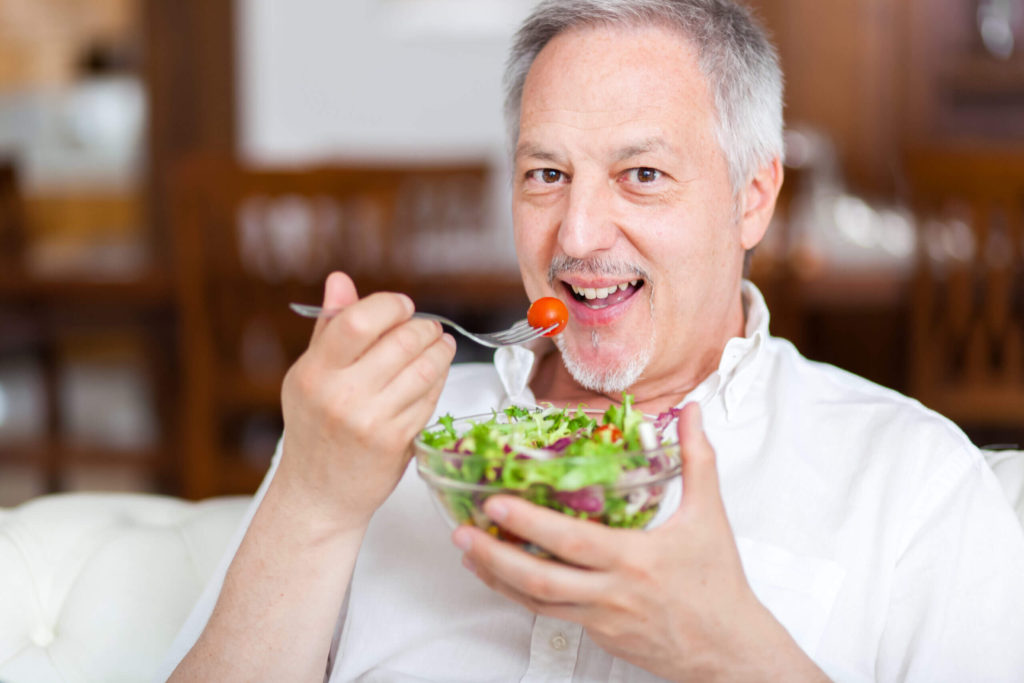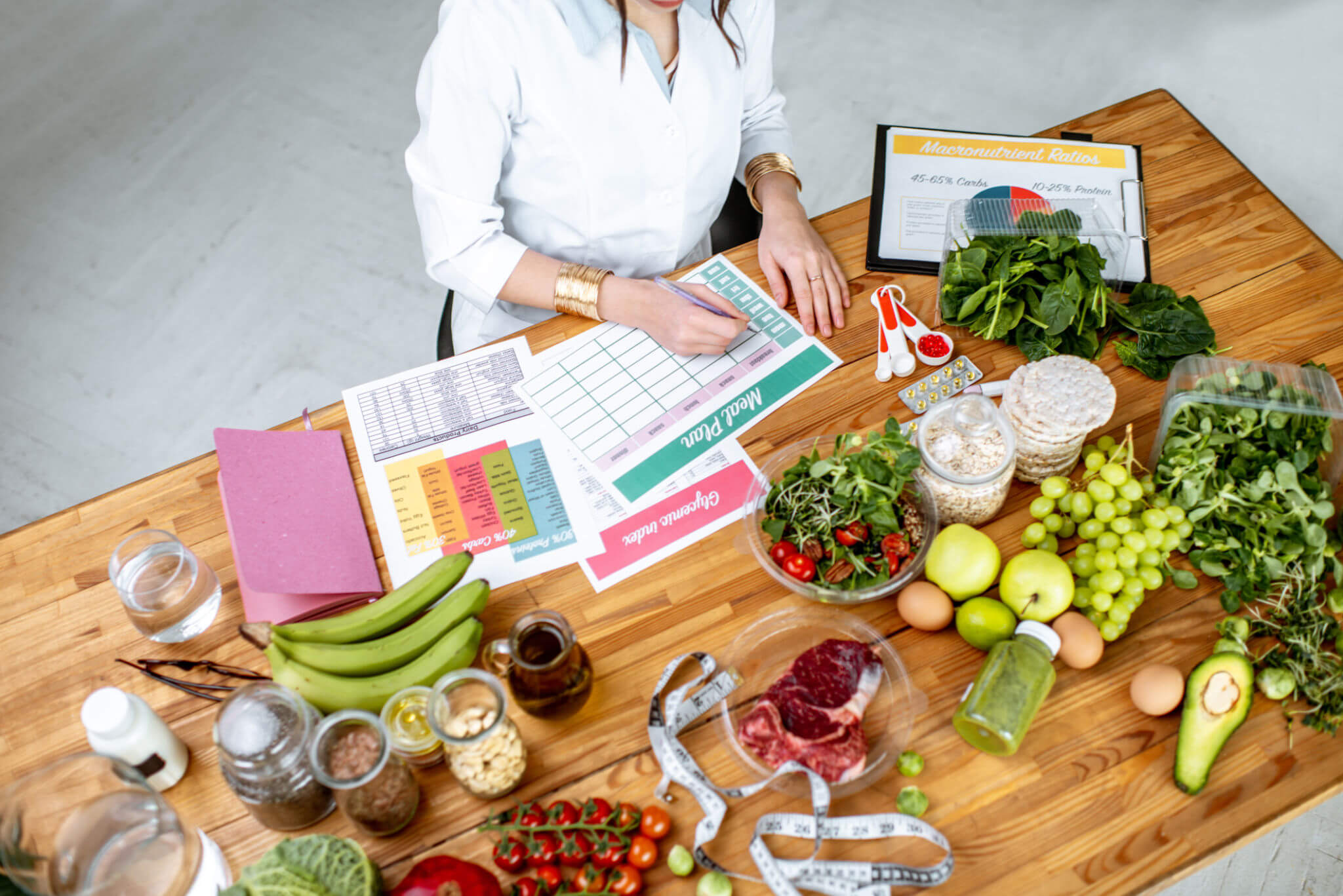What to do When Elderly Won’t Eat?
Do you have a parent or other relative who refuses to eat? Eating a diverse diet of fruits, vegetables and other foods that are nutritious and packed with vitamins is essential to living a high-quality life. However, plenty of seniors do not want to eat as food weighs them down, forces them to use the restroom and takes effort to prepare. There is a solution in the form of meals designed specifically for the elderly.
Invest the time necessary to prepare meals for your elderly loved one, choosing entrees and sides your parent or other family member is sure to love and he or she will be that much more likely to eat. When in doubt, opt for home care assistance in which a home care aide prepares meals for your parent, grandparent, aunt, uncle or other relative.
If your loved one still refuses to eat after you tailor a weekly meal plan to his or her desires, consider alternatives. As an example, the use of an appetite stimulant will help trigger your loved one’s appetite. Furthermore, some medication taken by the elderly has side effects. If those side effects interfere with hunger or eating, delay their consumption until after meals.
It will also help to be there during meal time with your loved one to provide social stimulation. Engage in conversation with the senior you love while eating dinner, eat at regularly scheduled times and the set schedule along with the prospect of someone to eat with will stimulate your parent’s appetite. The presence of a home health aide prepared with a 7-day meal plan for elderly will also lift the spirit and encourage eating. When in doubt, opt for smaller portions that are dense in nutrients as smaller meals tend to be that much more appealing as they aren’t nearly as intimidating as a large entrée that covers an entire plate.
How to Encourage Eating in the Elderly
Encouraging eating in the elderly is a challenge yet one within the realm of possibility. Be creative, maintain an open mind and be wiling to experiment. The solution that works for your senior might not work for another senior and vice versa. Try to figure out what is causing the senior you love so much to refuse to eat or lose their appetite.
A health problem might be the underlying cause of the refusal to eat. If you rule out health issues, consider shifting away from traditional meals to finger foods that are easier to eat and more appetizing. Examples of popular finger foods that qualify as summer foods for elderly include fish sticks, chicken nuggets and steamed veggies. If he or she still won’t eat, consider blending up some ingredients into a smoothie that constitutes a meal in and of itself. Add a straw and downing the contents of the smoothie will be that much more appealing when eating soft foods for the elderly.
How Many Meals Should an Elderly Person eat a Day?
Elderly individuals eat less than regular people as they aren’t as active. If the elderly individual in your life doesn’t have an appetite, encourage him or her to consume a small amount of food rather than completely skip over meals altogether. Ideally, seniors will eat two to three meals per day. However, the lack of physical activity makes two meals per day more appealing simply because it is difficult for seniors to burn through three meals’ worth of carbohydrates per day. Consuming small meals throughout the day also decreases the wild insulin swings that have the potential to cause health problems.
How Much Sugar Should an Elderly Person Eat?
In general, people get enough natural sugar from the fruits, vegetables and other foods they consume throughout the day. However, a small amount of artificial sugar won’t hurt. As a general rule of thumb, a senior’s sugar intake should be less than 20 grams per day.
Fruit and Vegetable Intake in Elderly
Though most adults eat one serving of vegetables and fruits per day, many fail to consume the recommended five vegetable and fruit servings per day to combat cancer and heart disease. Opt for fresh, dried, tinned or frozen varieties of fruits and vegetables and the senior you love will get all the fiber, minerals and vitamins he or she needs for proper biological functionality. However, there is a risk in going too far with fruit and vegetable intake as an influx of such foods can ramp up the excretory system functionality, spurring a trip the bathroom so try to reach and maintain a happy medium.

Healthy Drinks for Elderly Adults
Elderly adults who consume healthy drinks tend to be fitter, more energetic and happier. The question is what, exactly, should constitute those drinks to make them healthy. As an example, healthy drinks for the elderly range from fresh fruit smoothies, to infused water, Ensure Light, Ensure High Protein shakes, Boost Max and more. Mixing in a nutritional drink between meals makes it that much easier for the elderly to reach their aim for caloric intake.
How to Prepare Meals for Elderly for the Week
Preparing meals for the elderly is that much easier with the assistance of a home health aide. Reach out to a home health aide for assistance in caring for your aging parent or other relative and that professional will assist in meal prep. Preparing meals the right way centers on adding foods from various food groups. Prepare meals with a wide array of colorful fruits and vegetables and you will have done your part to prevent the onset of heart disease, diabetes, high blood pressure, diabetes and other health issues.
Menu for Elderly With no Teeth
It is difficult to find much happiness in life when it is difficult or impossible to chew through food. If the elderly individual you love so much finds it challenging to bite down into food or chew it into smaller particles, don’t assume he or she has to strictly consume a smoothie or liquid-based diet. Incorporate oatmeal, yogurt, mashed potatoes, scrambled eggs, soap and other foods with soft textures into the meals and they’ll be that much easier for the elderly with no teeth to consume.
Assisted Living Meal Ideas
The context of assisted living somewhat changes meals as there is more than one individual in the picture. However, with some creative thinking, it is surprisingly easy to come up with tasty assisted living meals everyone can enjoy. Instead of resorting to bland food designed for mass appeal in an assisted living facility, meals in such settings are changing.
Nowadays, assisted living meals are higher in quality than in years past thanks to a little ingenuity and creativity in the kitchen. Though the basics of soup and salad, pasta and hamburgers are still an option, more and more assisted living patients are being treated to new, fresh and intriguing meals. Examples include risotto, plant-based entrees such as veggie burgers, traditional meat-based casseroles, sushi rolls and plenty more.


